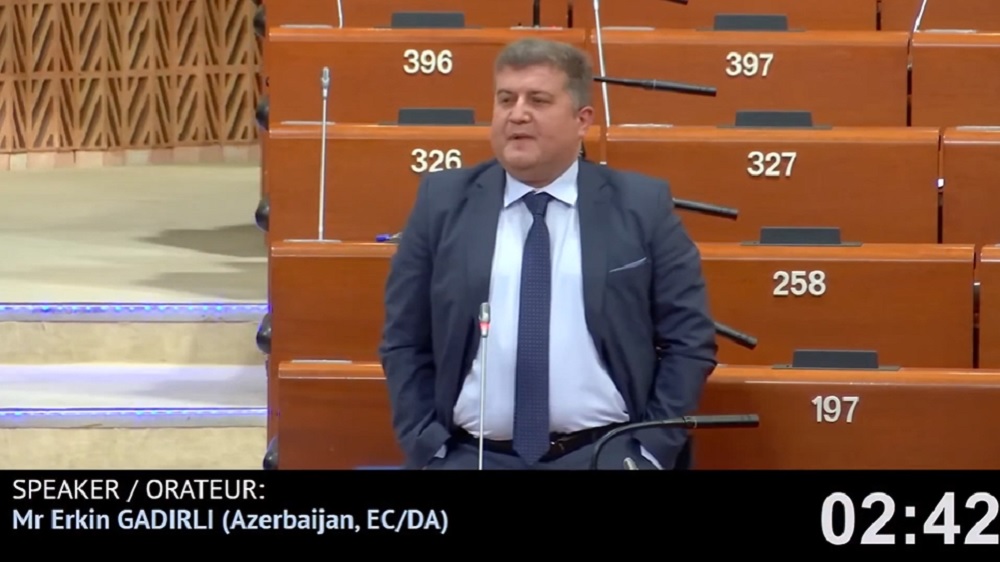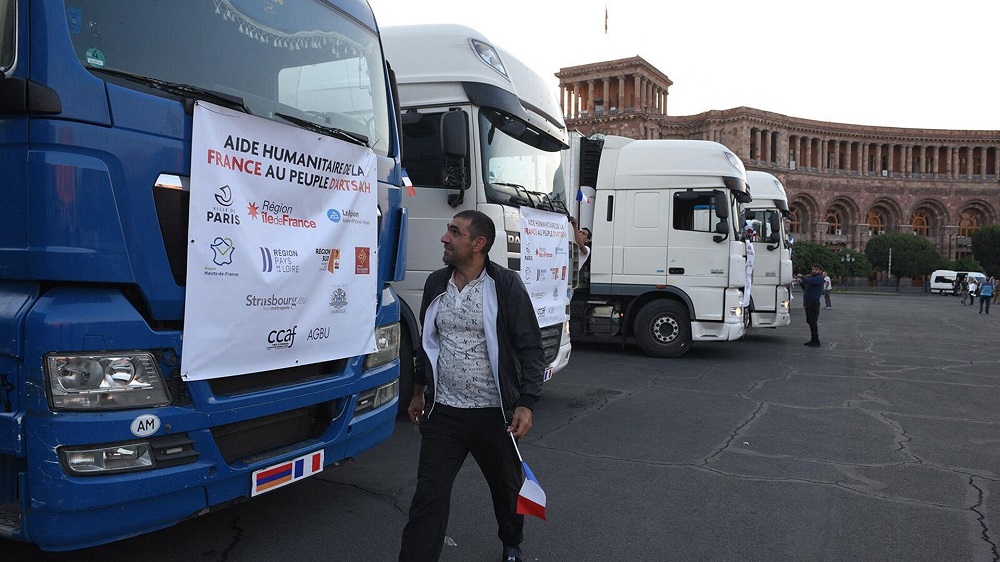PACE threatens Azerbaijan with sanctions. Is this step justified? Expert commentary
PACE threatens Azerbaijan with sanctions
The Parliamentary Assembly of the Council of Europe threatens Azerbaijan with sanctions. The first step in this direction has already been made – PACE did not approve the credentials of the Azerbaijani delegation. Azerbaijani pro-government media immediately afterwards wrote that Azerbaijan does not need the PACE and the country can also withdraw from the jurisdiction of the ECHR. According to political scientist Farhad Mammadov, with this decision, the West further alienates Azerbaijan from itself.
- New appointments related to COP29 in Azerbaijan
- “Manifestation of religious intolerance” – Georgian parliament speaker against “Center for Tolerance” and its head
- In Abkhazia, the National Art Gallery was completely consumed by fire
What happened?
The credentials of the Azerbaijani delegation were not approved yesterday at the first meeting of the winter session of the Parliamentary Assembly of the Council of Europe (PACE). The proposal of German MP Frank Schwabe to not approve the credentials of the Azerbaijani delegation was supported and sent to the Monitoring Committee for a decision.
The Azerbaijani delegation participated in the meeting, but its voting right was limited.
Baku’s reaction
“The main reason cited was that the Azerbaijani side did not allow to visit the Lachin corridor and monitor the situation in Karabakh, as well as to meet with Azerbaijani ‘political prisoners’ in 2023. The monitoring committee is obliged to make a decision within 24 hours,” pro-government APA news agency said in a publication.
“Despite the fact that the German MP and his colleagues who supported this initiative tried to explain the issue by human rights, it is clear that this has no connection with human rights. What is happening is an attempt to take revenge on Azerbaijan, which has restored its sovereignty and territorial integrity,” the article, published without mentioning the author, claimed.
“Over the years, PACE has turned a blind eye to the fact that one member country – Armenia – occupied the territory of another member country – Azerbaijan, and did not even think of limiting the voting rights of the aggressor country.
The Karabakh problem has already been solved. Azerbaijan does not need the Council of Europe, which has no influence in Europe.
It is necessary to take an adequate step depending on the decision to be taken by PACE. If the PACE decides not to approve the powers of the Azerbaijani delegation and to limit its voting rights, it will be advisable for the Azerbaijani delegation to stop its activity in this organization.
In addition, the withdrawal of Azerbaijan from the jurisdiction of the European Court of Human Rights may become relevant. It would be appropriate to recall here that since Azerbaijan became a member of this organization in 2001, pro-Armenian and Islamophobic forces have constantly used it as a tool against Azerbaijan.
Membership in this organization has given Azerbaijan almost nothing. The Council of Europe and PACE, as well as other Christian clubs such as the European Union and the European Parliament, have always taken a biased and biased position towards Azerbaijan and Turkey,” the agency notes.
Commentary by political scientist
“PACE is preparing to consider the issue regarding restrictions on the activities of the Azerbaijani delegation. Baku has outlined for itself in the governmental media a response measure: full suspension of the delegation’s activity, withdrawal from PACE and the ECHR.
This is a serious measure, as participation in PACE is one of the important directions of the European layer of Azerbaijan’s foreign policy,” Azerbaijani political scientist Farhad Mammadov said.
In his opinion, the seriousness of the situation is that sanctions are applied to Azerbaijan because of the Karabakh Armenians:
“We are accused of something we did not do! And all this is happening against the background of certain progress in the bilateral negotiation format between Azerbaijan and Armenia.
As soon as Azerbaijan formalizes a bilateral agreement with Armenia, provocations from the Western and Russian flanks begin.”
Mammadov notes that “the most interesting thing in this whole story is that Pashinyan and his team find themselves in an awkward position”:
“On the one hand, there are negotiations with Baku, in which there is no Karabakh topic, and on the other hand, Armenia’s European partners are stirring up the topic of Karabakh Armenians, as they cannot stop the anti-Azerbaijani inertia …
How will the deputies from Pashinyan’s party vote during the vote on the topic of restrictions on the activities of the Azerbaijani delegation? That is the question. After all, such decisions and resolutions are perceived in Armenian society as hope.
If Pashinian’s party group votes in favor, it will be a big problem in the negotiation process. If they abstain, the hope for the effectiveness of the negotiation process will increase.
By a strange coincidence, it is Russia, France, the European Parliament and PACE that have joined the ranks of opponents of the bilateral format of negotiations between Azerbaijan and Armenia.
It will be very interesting to watch the faces of all these groups in case a peace treaty is signed between Azerbaijan and Armenia. Otherwise, it will be these groups that will achieve their goals.
And so, with this decision, the West is further alienating Azerbaijan.”




















